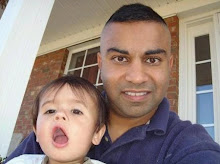
Primary Care here is not like in the states. When one goes to their doctor, they usually see a family physician or internist. They may go to a small clinic office or a hospital if their doctor is affiliated with such. Statistically over 90% of primary care patients will be managed successfully without the need for specialist consultation. This illustrates how our system is centered around primary care.

Not so in Iraq. Small Public Health Clinics, or PHC's are usually staffed by 'family doctors' or 'community health' doctors, but in reality these physicians have recieved much less training than a specialist. Most of the time they are intern equivalents. Society has adjusted its practices to this and most people will bypass these PHC's if they feel their condition is serious. This is not a criticism of the Iraqi system of care, but it needs to be recognized. One mistake that outside entities make is that they try to change the Iraqi system into the US system (or that of other western nations). Problem is that the physicians nor the people understand this. It would be like someone telling a US hospital that ER physicians would need to start accompanying ambulance crews.
In light of this, one must understand that the primary role that Iraqi PHC's play is in the area of public health and preventive medicine. Unfortunately, they cannot perform this because most clinics are not entitled to the same 24hr essential power that hospitals, security stations, and other entities recieve. This makes it impossible to store immunizations. Lack of power also contributes to their overall lack of capability such as the inability to provide x-ray and laboratory services except for the 2-3 hours of public power that they may recieve.



No comments:
Post a Comment